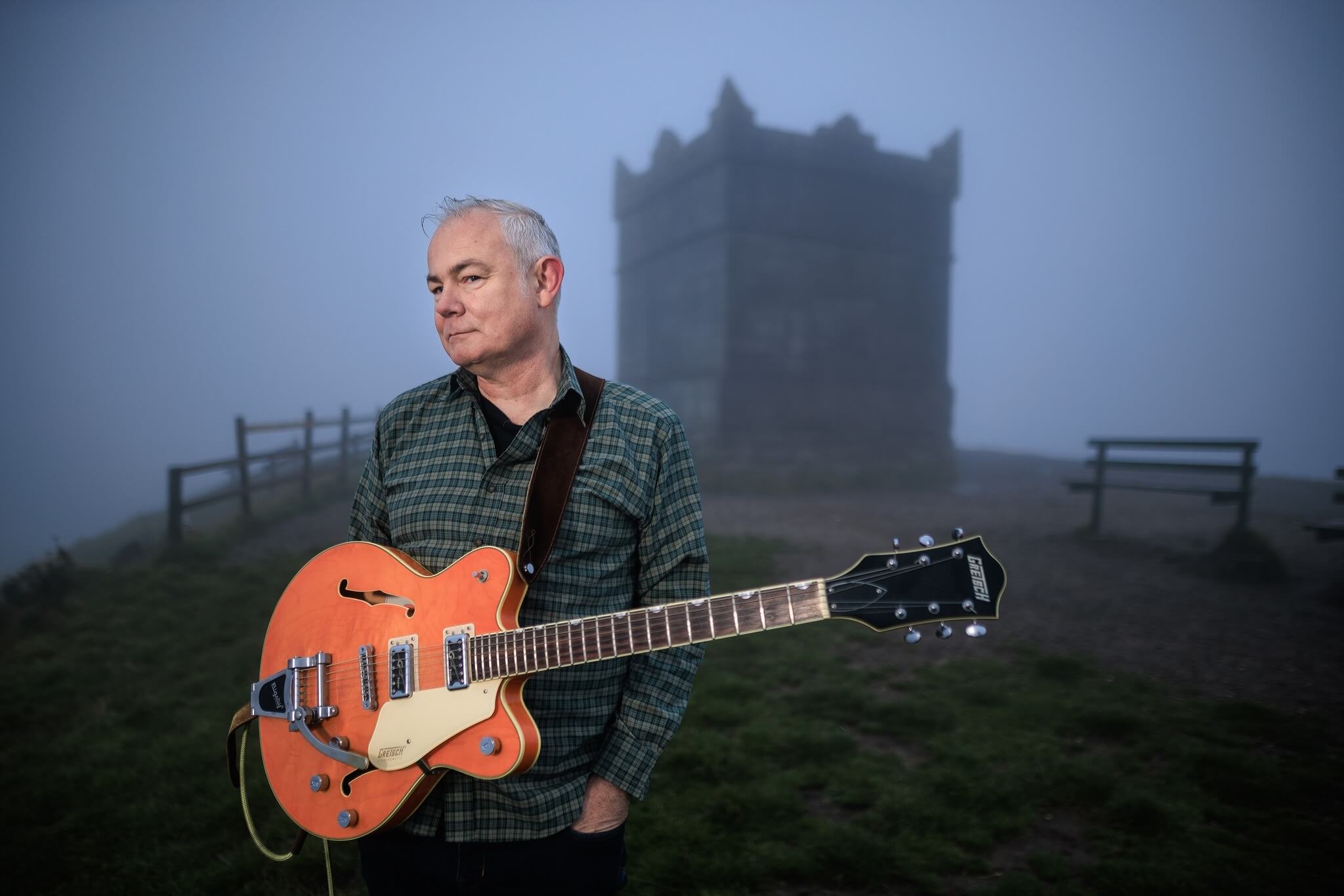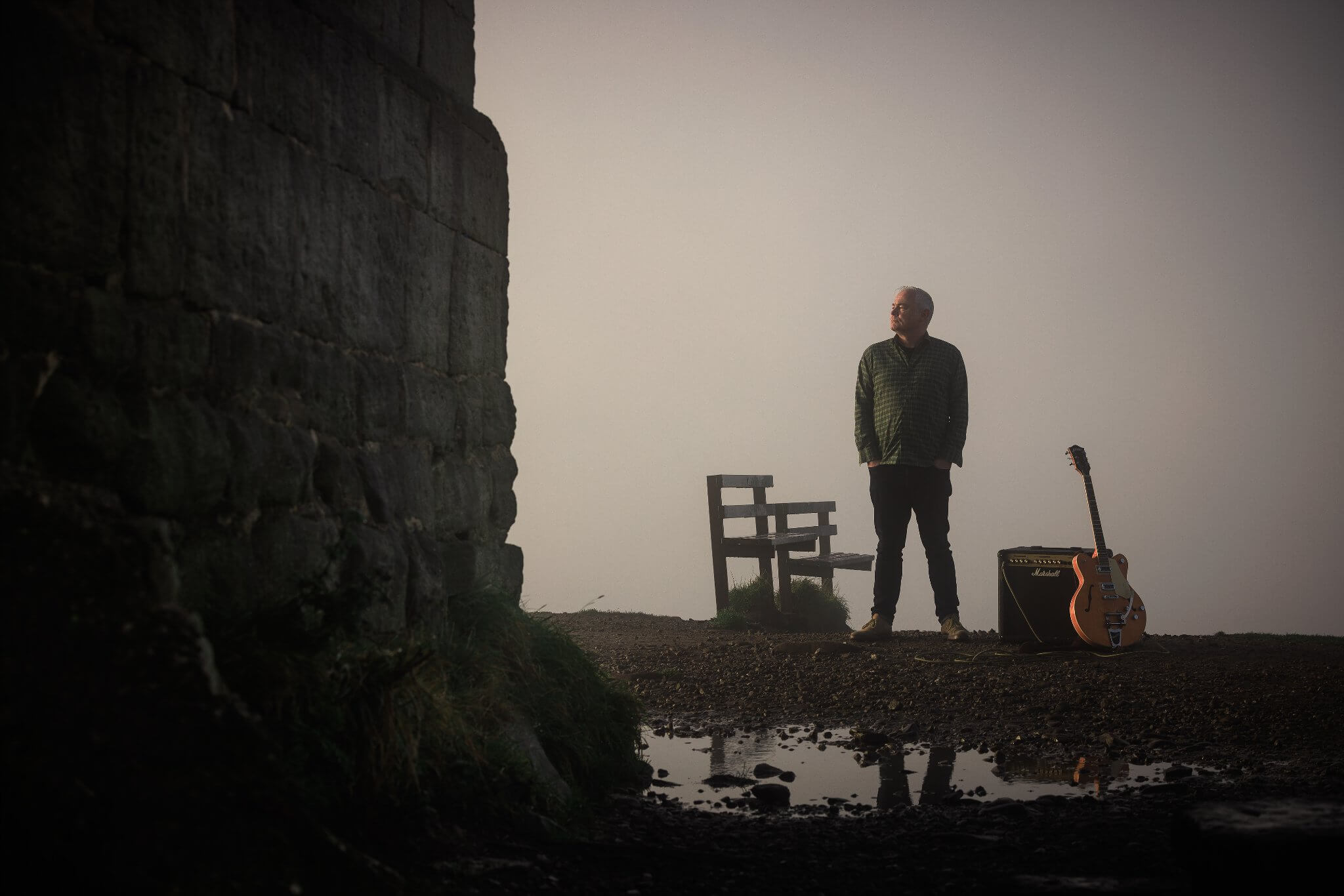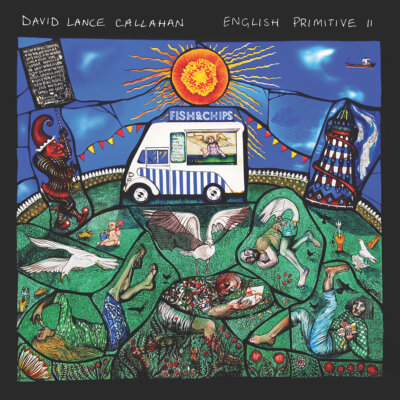As promised, the former Moonshake returns in short order
“English Primitive II” it’s a darker work than its predecessor without affecting David Lance Callahan’s enormous talent as a storyteller
Photo cover by Joel Goodman
David Lance Callahan made a promise in the interview he kindly gave us: “English Primitive II is finished and in production and will be both very different and very similar.” A year after the release of the first volume, the former Moonshake and current member of the reformed The Wolfhounds has kept his promise by coming back to make his voice heard with English Primitive II, a noisier and more psychedelic record than its older sibling, but maintaining the same eclectic range of inputs. Although the author is constantly torn between the mystical and the concrete in his lyrical writing, his social outlook (in theory gloomy but optimistic), slips on the troubling current state of the UK (and the world) that seems to have returned to that ancient social order formed by a seemingly untouchable caste of the rich and powerful and a complete lack of freedom for anyone who works for a living. Complementing this dark-colored picture is the lack of a free press and that Brexit which, after being pushed by a preened public opinion, ended up in not turning every promise made into reality as was to be expected. This new work encompasses according to its author the “songs of experience” addressing lyrical themes such as the bleakness and corruption of powerful people and their vassals, and the harassment inflicted in the most disparate ways on the weakest.

Coming from the same sessions, it was only natural that the musicians accompanying Callahan would be the same as on the first volume: fellow drummer Daren Garratt (Pram, The Fall, The Nightingales), multi-instrumentalist (and co-producer) Rory Attwell and the string quartet Iskra Strings. In addition to them, the record again features the (successful) fusion of the voices of Callahan and Katherine Mountain Whitaker (of the misnamed Evans The Death), whom the songwriter trusts so blindly that he gave her the complete lead on the pastoral ballad “The Burnet Rose”. The song renders its name from the author’s favorite wildflower that still covers the graves of victims in a 17th-century village plague-ridden on the edge of a Yorkshire cliff, commemorating a now-forgotten sacrifice.
The record begins with the primitive rhythms of “Invisible Man” where the repressed grievances of a common man simmering with resentment, unseen but in plain sight, are put out in the public square as the intersection of fuzz guitar and tabla (and between the two voices) creates an intricate and ghostly vision that erupts into a liberating riff. The following “Beautiful Laundrette” takes its cue from Hanif Kureishi’s screenplay brought to the big screen by Stephen Frears to speaking in a sharp tone about the sleazy business of laundering illegal gains and the profits of crime that sees London as its main epicenter.
“All products get dirty at some point and need some elbow grease to get ‘em looking in-transit-security-box fresh. There’s nowhere better to get your assets snow-white and sparkling than our capital city. Got a spare few billion to wash after your government collapses? Need to scrub up your cocaine dollars into lovely, rollable, crisp twenties? Need to jump off the top of that Ponzi pyramid with a few sacks of the dragon’s gold? Our service wash will make it all as good as new. We’ve a reputation to uphold, after all.”
The rolling psychedelic blues of the long “The Parrot” linger on those whose job it is to patiently patrol the boundaries of what is allowed to be said and believed with the aim of being sure that powerful men maintain their authority in all respects. A not too veiled indictment against political journalists seen as the courtiers of our time, in the past often ridiculed as parrots, who, as centuries ago, are tasked with conveying what the powerful want us to believe. Callahan masterfully slows down the rhythms along with the beautiful voice of Anja Büchele (we remember her in the awesome “400 Winters” from Bark Psychosis’ unexpected comeback Codename: Dustsucker) with a soothing “The Scapegoat” (whose idea of talking about low-wage employees from large corporations being used as scapegoats for the complaining public comes from Daniel Pennac’s Malaussène cycle) before the string quartet Iskra Strings introduces one of the album’s most intimate and dramatic moments. In the poignant “Bear Factory”, in fact, Callahan’s voice and guitar go back in time to tell the true story of the murder of one of his elementary school classmates. Darren Garrat’s gorgeous rhythms introduce the rolling, heartfelt “Orgy Of The Ancients”, where Callahan describes the intimate (and disgusting) complexity of the collaboration between our media and the old ruling class by imagining Caligula’s palace being moved into the 21st century. For the grand finale, the singer-songwriter looks to one of his admired predecessors, setting verses from William Blake’s “London” in a layered, oppressive and almost hopeless “London By Blakelight”. This is underscored by a cadenced drum beat and by his guitar that mixes psychedelia, blues and African influences as in the past Moonshake had successfully combined rolling polyrhythms, propulsive sounds, electronica, dub, art rock and kraut-rock.
“The track is, of course, me setting one of William Blake’s most concise and straightforward sets of allusions to music. Songs of Experience is one of the works I am cursed to keep in mind whatever I’m writing about, and ‘London’ is one of the most accessible and relatable poems in it.
Blake’s vision of a capital city beset by the corruption of the powerful and ever-tightening restrictions on freedom finds many echoes in what is happening now, 228 years after the poem was first published. I seems to me that his jaundiced vision falls in line with the themes I use on the rest of the album.
The song is also a form of redress. Several artists have bludgeoned the hymn ‘Jerusalem’ (adapted from Blake’s Prophetic Writings) to death, probably intending to satirise its jingoistic overtones. I hope to underline that the poet’s ideas still reverberate and have a bearing on our current state.”

The second part of English Primitive does not disappoint in any way, showing an increasingly mature and multifaceted author capable of setting to music tales of real life and a vision of a British society in which the mechanisms of cultural assimilation and political system are not exactly well-oiled. The prevailing corruption, the intentional and unintentional brutality inflicted on the weakest and the sometimes perverse ways in which this happens are blunted with stark realism in eight extraordinary stories. An intricate and ghostly vision underscored once again by a stunning cover, a reproduction (as in the first volume) of a stained glass work by artist Pinkie MacLure (half of Pumajaw) capable of perfectly reflecting the darkness and light of the songs.
TRACKLIST
1. Invisible Man 6:27
2. Beautiful Laundrette 3:43
3. The Parrot 7:00
4. The Scapegoat 4:01
5. Bear Factory 6:14
6. The Burnet Rose 5:11
7. Orgy Of The Ancients 7:01
8. London By Blakelight 4:33









